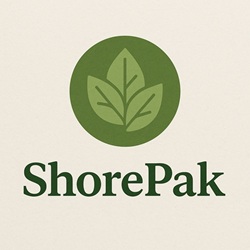The supplement market is undergoing a quiet revolution, influenced by a more informed and health-conscious consumer base. Recent trends reveal a shift towards products that are not just effective but also scientifically validated. As advancements in technology continue to reshape this landscape, there’s a growing emphasis on personalized nutrition and addressing specific health needs. What does this mean for the future of health management solutions? The answer lies in understanding these emerging dynamics.
Key Takeaways
- Growing consumer demand for health and wellness drives significant market growth, with a projected value of $67.43 billion by 2024.
- AI is revolutionizing supplement development, enhancing clinical trial efficiency and enabling personalized nutrition recommendations based on consumer health data.
- There’s a rising focus on women’s health, particularly menopause-related supplements, which generated $635.1 million in sales in 2023.
- Transparency and research-backed evidence are crucial as consumers increasingly seek scientifically validated products and scrutinize product labels for authenticity.
- Innovations in health management solutions are emerging, addressing nutrient deficiencies linked to GLP-1 drugs and promoting tailored products for overall wellness.
The Science-Driven Consumer Revolution
As consumers increasingly prioritize health and wellness, the demand for scientifically backed supplements has surged.
In 2023, the supplement market experienced a 4.4% growth, with projections suggesting it will reach $67.43 billion by 2024.
Savvy shoppers now favor clinically proven ingredients, often willing to pay over 20% more for products labeled accordingly.
Savvy consumers increasingly seek clinically proven ingredients, often paying a premium for transparency and trust in their supplements.
This trend underscores a shift toward scrutinizing product labels, reflecting a desire for transparency and self-regulation.
The emphasis on scientific validation over marketing hype signals a change in consumer behavior, pushing brands to enhance their credibility through research and evidence-based claims.
AI Innovations in Supplement Development
While the supplement industry increasingly embraces artificial intelligence, it’s transforming how products are developed and marketed.
AI streamlines clinical trial designs, enhancing efficiency in product testing and market research. This technology allows companies to analyze consumer health data, leading to personalized nutrition recommendations.
Additionally, AI improves food safety and regulatory compliance, giving businesses a competitive edge. Small retailers benefit by leveraging AI for operational improvements and increased customer engagement.
As AI continues to integrate into the supplement sector, it’s driving innovations that enhance product safety, compliance, and efficacy, ultimately reshaping consumer experiences in the marketplace.
Focus on Healthspan and Women’s Health Needs
The focus on healthspan and women’s health needs is reshaping the supplement market as consumers prioritize quality years of life over mere longevity.
As awareness of women’s unique health challenges grows, brands are developing specialized products targeting various life stages, particularly menopause. Sales of menopause-related supplements surged to $635.1 million in 2023, reflecting a demand for thoughtful marketing.
Additionally, the weight loss sector anticipates significant growth, addressing nutrient deficiencies linked to GLP-1 drugs. This evolving landscape highlights the importance of tailored solutions that enhance overall health and wellness for women, marking a shift towards more extensive health management.
FAQ
What Should Consumers Look for in Supplement Labels?
Consumers should look for clinically proven ingredients on supplement labels, ensuring products are backed by strong scientific evidence. They should prioritize transparency, verifying sources and understanding nutritional claims to make informed, health-focused decisions.
How Can Consumers Verify the Efficacy of Supplements?
Some may think verifying supplement efficacy is intimidating, but consumers can check for third-party testing, clinical studies, and ingredient transparency. They should prioritize brands that openly share scientific backing and quality certifications.
Are There Specific Regulatory Bodies Overseeing Supplement Safety?
Yes, there’re specific regulatory bodies overseeing supplement safety, primarily the FDA in the U.S. They establish guidelines, guarantee compliance, and monitor products, though the industry often self-regulates due to limited pre-market approval requirements.
What Role Do Third-Party Testing Organizations Play in Supplements?
Third-party testing organizations act like vigilant guardians, scrutinizing supplements for purity and potency. They make certain consumers trust what’s inside each bottle, reinforcing confidence by verifying claims and keeping companies accountable for their promises.
How Can Consumers Stay Informed About New Supplement Research?
To stay informed about new supplement research, consumers should follow reputable health websites, subscribe to scientific journals, and engage with online forums. They can also attend webinars and workshops focusing on nutritional science advancements and emerging products.
Conclusion
As the supplement market evolves, consumers are embracing science-backed products, demanding personalized solutions, and prioritizing transparency. They seek not just to survive but to thrive, focusing on healthspan and wellness at every stage of life. With AI driving innovation and a heightened awareness of women’s health needs, the future of supplements looks bright. Ultimately, it’s about informed choices, empowered decisions, and a commitment to holistic health that will shape the landscape of wellness for years to come.

